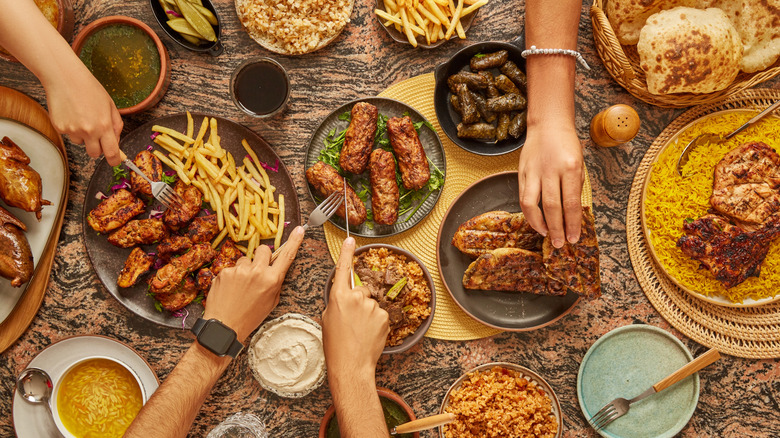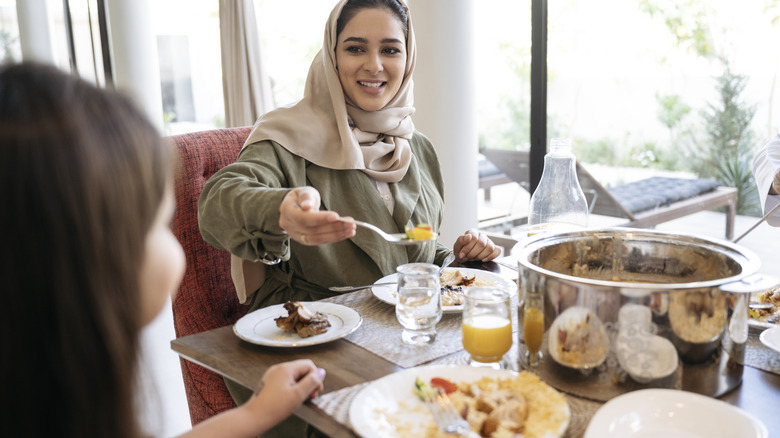The Unspoken Seasoning Rule Tourists Need To Know Before Dining In Egypt
Exploring different cuisines is one of the best parts of traveling abroad. From European destinations made for adventurous foodies to underrated countries serving up five-star dishes, the world is teeming with ingredients, flavors, and recipes that are just waiting to be enjoyed. However, in between the mouthwatering smells and colorful dishes, the excitement of trying something new can make you forget about the importance of following dining customs and etiquette.
While most travelers typically understand the rules back home — like waiting for everyone to be served before eating and not talking with your mouth full — certain cultural expectations aren't as obvious. This is especially true when it comes to something as specific as how you enjoy having your food.
Specifically, Egypt, a must-visit country to include in your Africa bucket list, has its own set of customs and traditions that help determine proper behavior at the table. One of these is the unspoken rule of never adding any extra seasoning — whether that's salt, pepper, or something else — to your food. But what's the issue with sprinkling some salt on there? Well, per locals, this seemingly harmless habit can send an unwanted message about the quality of your meal and even insult the chef's abilities altogether.
More Egyptian dining rules to keep in mind
In some cases, adding extra salt to your food in Egypt doesn't just mean that you think the dish needs to be improved; it can also suggest that you find the meal unpalatable. After all, the cook seasoned each dish according to local recipes and tastes — so adding any extra condiments is essentially unappreciative and dismisses their way of cooking. This is particularly important to remember when you've been invited into someone's home, where the gesture can be especially offensive to your host.
Along with skipping the extra condiments, there are many other important Egyptian dinnertime customs that might catch travelers off guard. For example, there's the common rule of only using your right hand while eating a meal with your hands, passing around dishes, and handling utensils. This, because in Muslim culture, the left hand is considered "unclean," which means it's typically reserved for less-pleasant daily habits, like personal hygiene.
Another important custom to keep in mind while dining in Egypt is how locals show appreciation for the meal they've just had. While a simple "thank you" and a smile might seem like enough, there are other things you can do to let your host know how much you've really enjoyed the food. This includes offering compliments about the meal, reaching for seconds, and even leaving a small amount of food on your plate as a sign that you dined in abundance.

